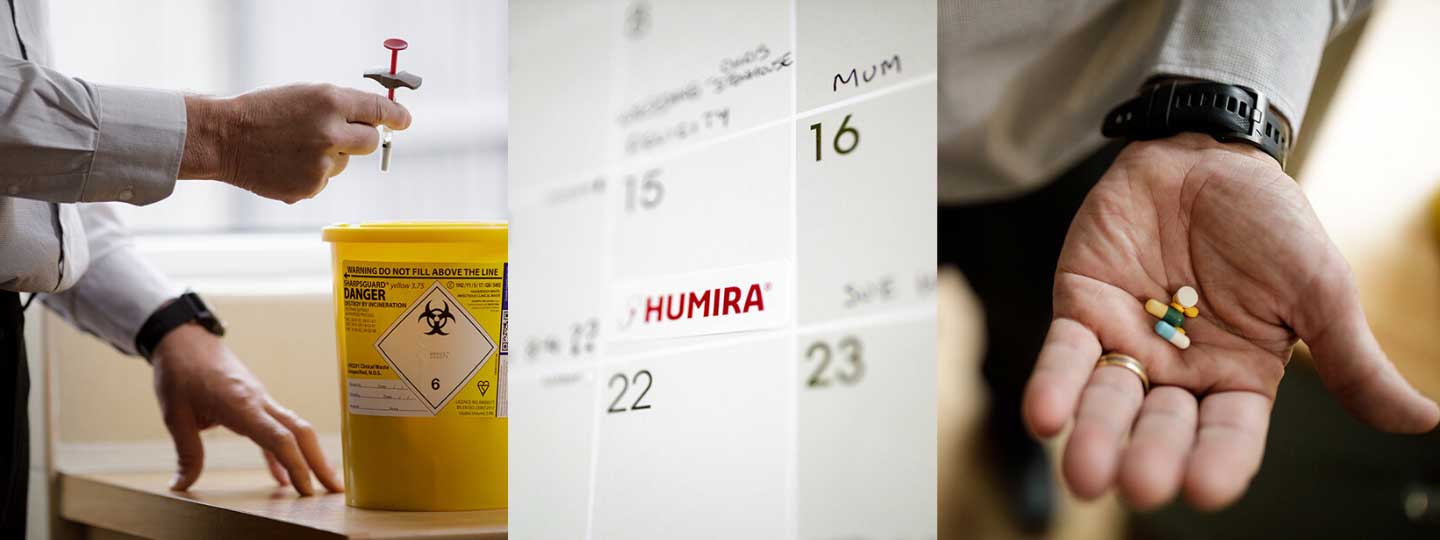Anti-TNF research helps us to understand COVID-19 impact
16 October 2020
TNF is a protein that occurs naturally in the body and plays a major role in inflammation.
Anti-TNF therapies are used to manage the inflammation levels in patients who have rheumatoid arthritis. These drugs include etanercept, infliximab, adalimumab, certolizumab pegol and golimumab.
Our anti-TNF research
A clinical trial conducted in 1992, funded by Versus Arthritis, treated people using an antibody. This antibody, called an anti-TNF, binds to the TNF protein and blocks it from creating inflammation.
The trial was a major success, laying the groundwork for anti-TNF therapies, the first of which – infliximab – was approved in 1998. Read more about how our research has transformed the lives of people with arthritis.
How does this link to COVID-19?
As well as blocking the TNF protein, anti-TNF treatments also affect a group of immune cells known as regulatory T cells.
These cells can help to stop inflammation but don’t work properly in rheumatoid arthritis. Anti-TNF treatment can boost their number and function to help control inflammation.
Researchers at University College London (UCL) have been exploring how these particular immune cells respond to anti-TNF treatment, to understand how rheumatoid arthritis inflammation can be suppressed by targeting these cells. This could help to identify new targets for potential drug treatments for rheumatoid arthritis.
It has now been shown that the same immune cells play a role in inflammation in COVID-19, and therefore research into rheumatoid arthritis could help us to better understand the how the virus affects our immune system.
Using anti-TNF research to understand COVID-19
It remains unclear whether patients with rheumatoid arthritis treated with immunosuppressant drugs, such as anti-TNF are more (or less) at risk of COVID-19 and its complications.
Previous research at UCL has produced data showing how the immune cells of rheumatoid arthritis patients are altered after anti-TNF therapy, by studying the cells before and after treatment.
Over the next 12 months, the team, led by Professor Mike Ehrenstein, will look at immune cell changes during or after COVID infection, comparing healthy individuals to those taking anti-TNF for rheumatoid arthritis.
How will this research benefit future treatments?
Anti-TNF treatment causes a boost in regulatory T cells that helps to control inflammation. This influence on the immune system may have the potential to suppress the inflammation associated with COVID-19 in patients with rheumatoid arthritis.
Understanding how the immune system is affected by COVID-19 in rheumatoid arthritis patients is important to ensure people receive the correct ongoing treatment.
Researchers also hope to understand if COVID-19 infection causes longer term changes to immune cells that could impact treatment of rheumatoid arthritis after infection.
We’re committed to supporting research
We currently invest £134.6 million in cutting-edge research, of which over £60 million (45%) is dedicated to inflammatory arthritis and immune system research, aiming to better understand arthritis as well as develop new drugs, treatments and ways to manage the condition. Ultimately, this research aims to improve the quality of life for people with arthritis.
Find out how you can support our vital services and help people living with arthritis.
Get the support you need
- If you would like to talk to someone, you can call our free helpline on 0800 5200 520 (Monday to Friday, 9am to 8pm)
- Talk to our arthritis virtual assistant, 24/7
- Join our online community
- Stay in touch and follow us on Twitter, Facebook and Instagram.